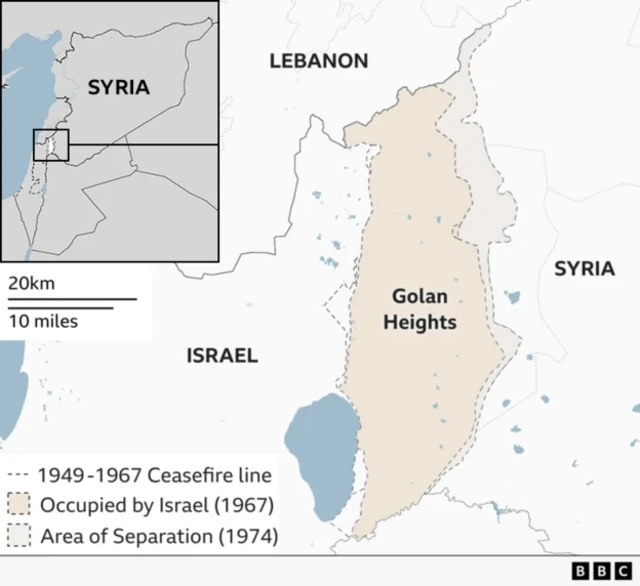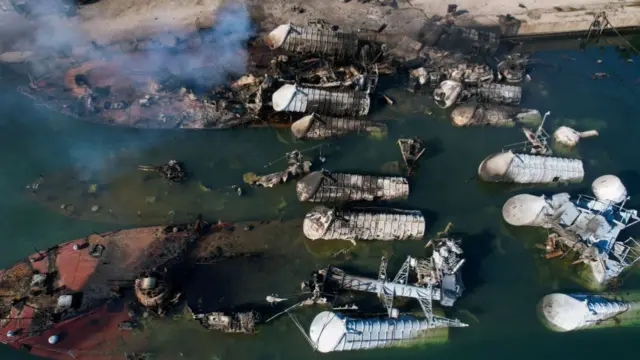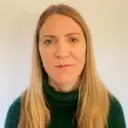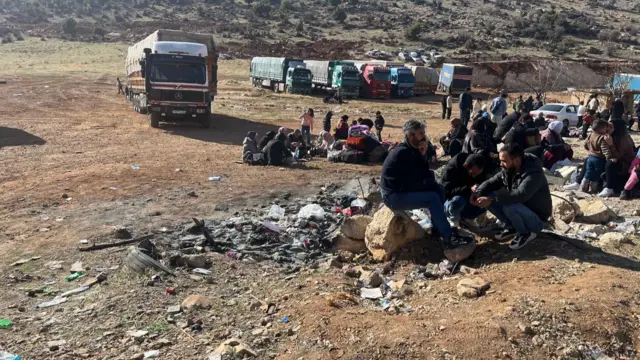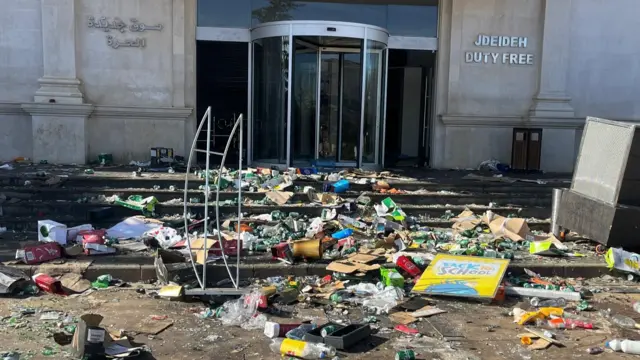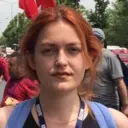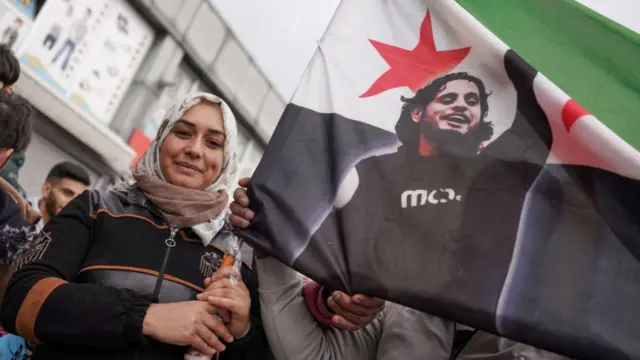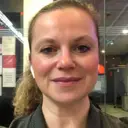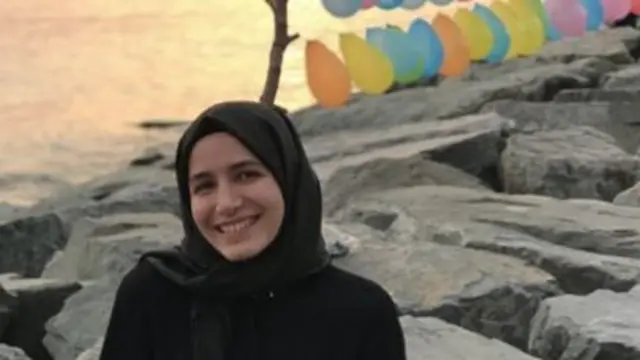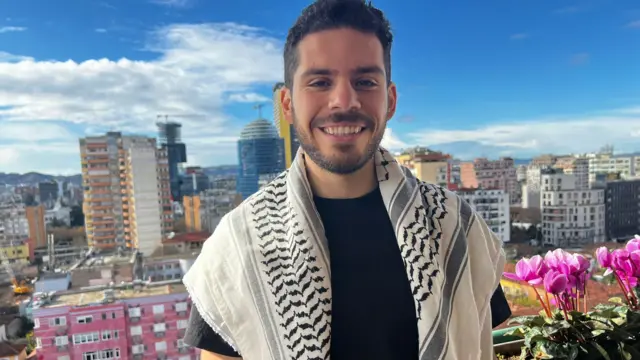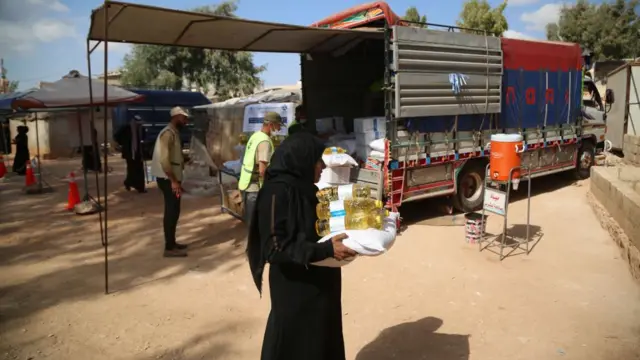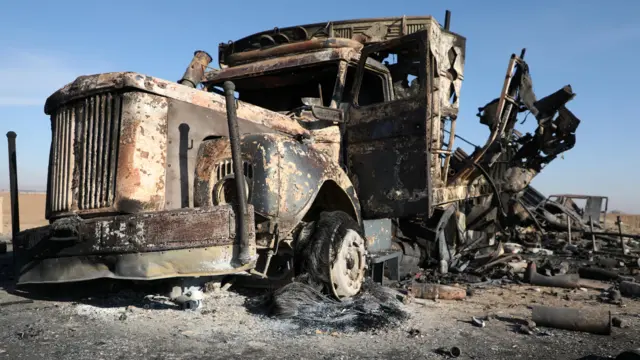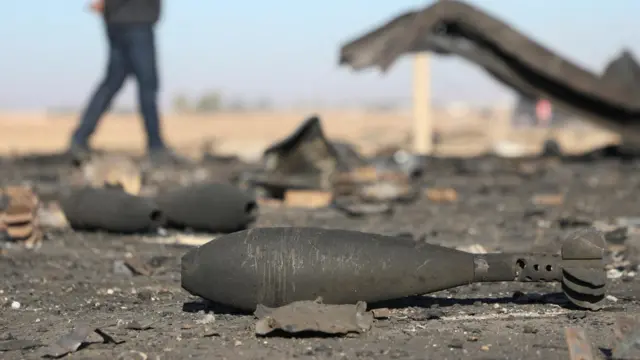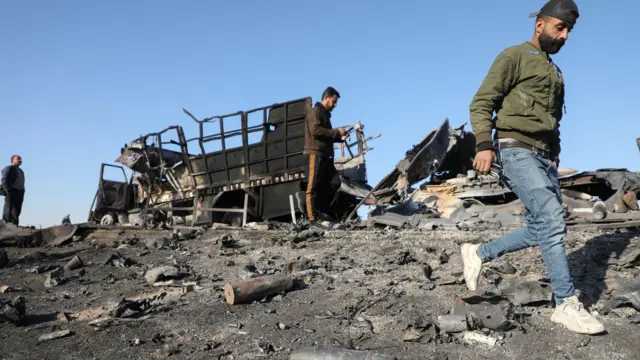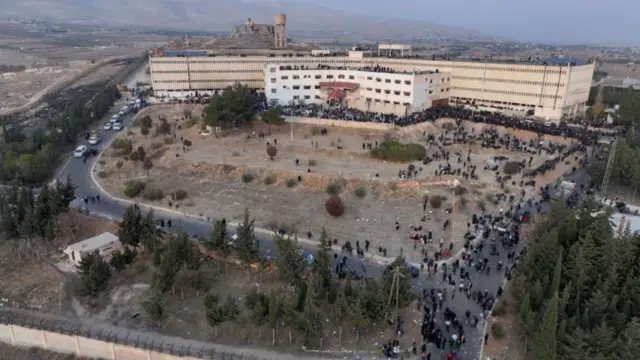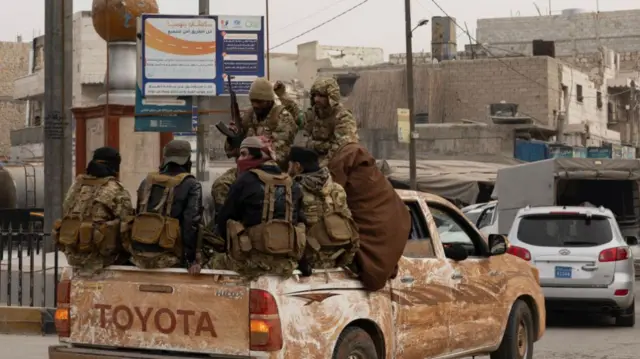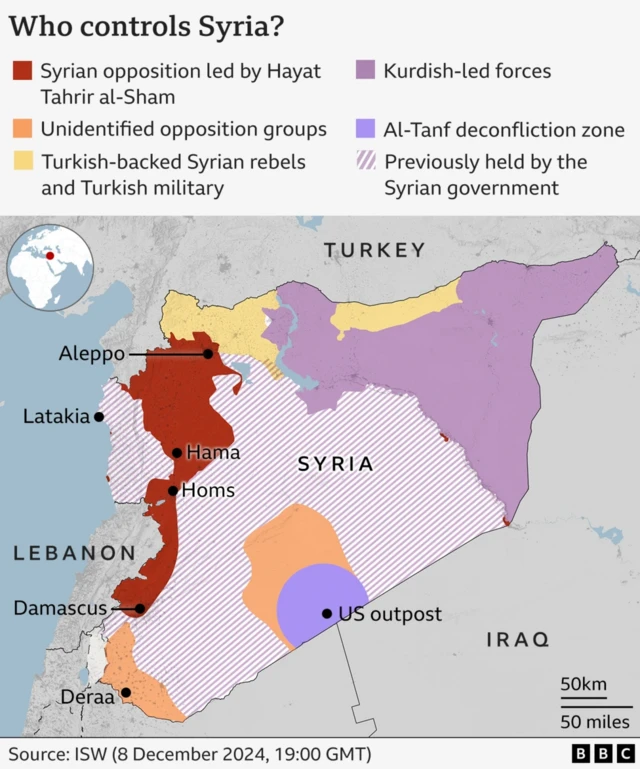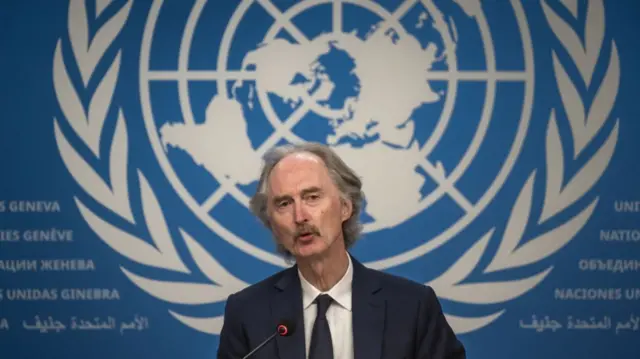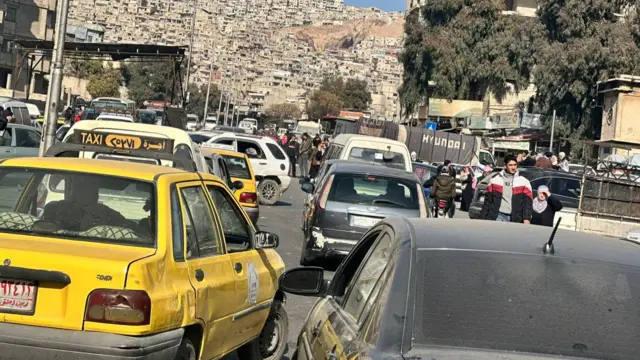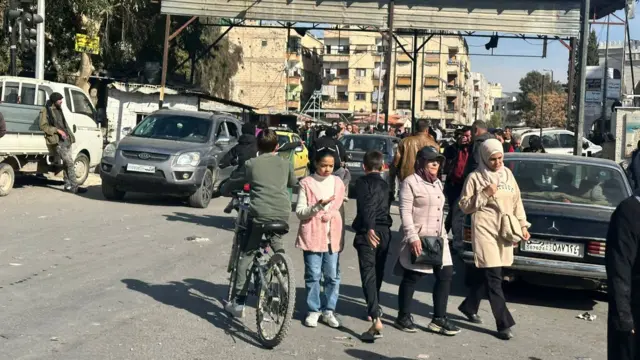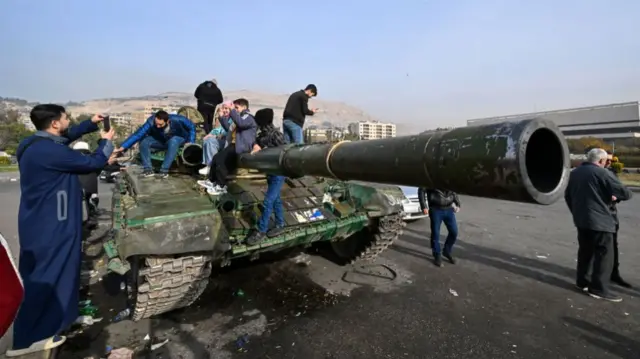What is the Golan Heights?published at 14:36 GMT 10 December 2024
We mentioned earlier that the IDF has for the first time acknowledged that its troops are operating beyond the demilitarised buffer zone in the Golan Heights.
But what does this mean in the context of the recent developments in Syria?
The Golan Heights is a rocky plateau in south-west Syria, extending towards north-east Israel.
In the 1967 Middle East war, Israel captured about 1,200 km sq (roughly 460 square miles) of the Golan Heights, from which Syria had attacked it.
Israel annexed the area in 1981, in a move which has not been recognised by the vast majority of the international community. The Trump administration broke with decades of US policy by recognising Israeli sovereignty over the occupied Golan Heights in 2019.
Syria says the land has always belonged to it and has vowed to recover the territory, while Israel says the heights are crucial for its defence and will remain in its hands forever.
About 20,000 Jewish settlers live on the Golan Heights, which is also home to Israeli military bases and listening posts. The settlements are considered illegal under international law, though Israel disputes this.
